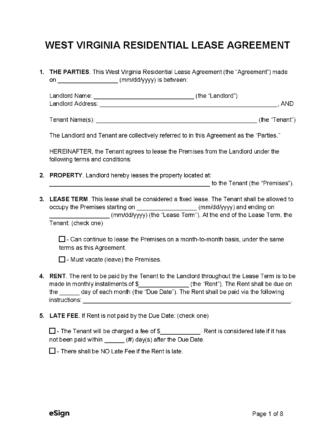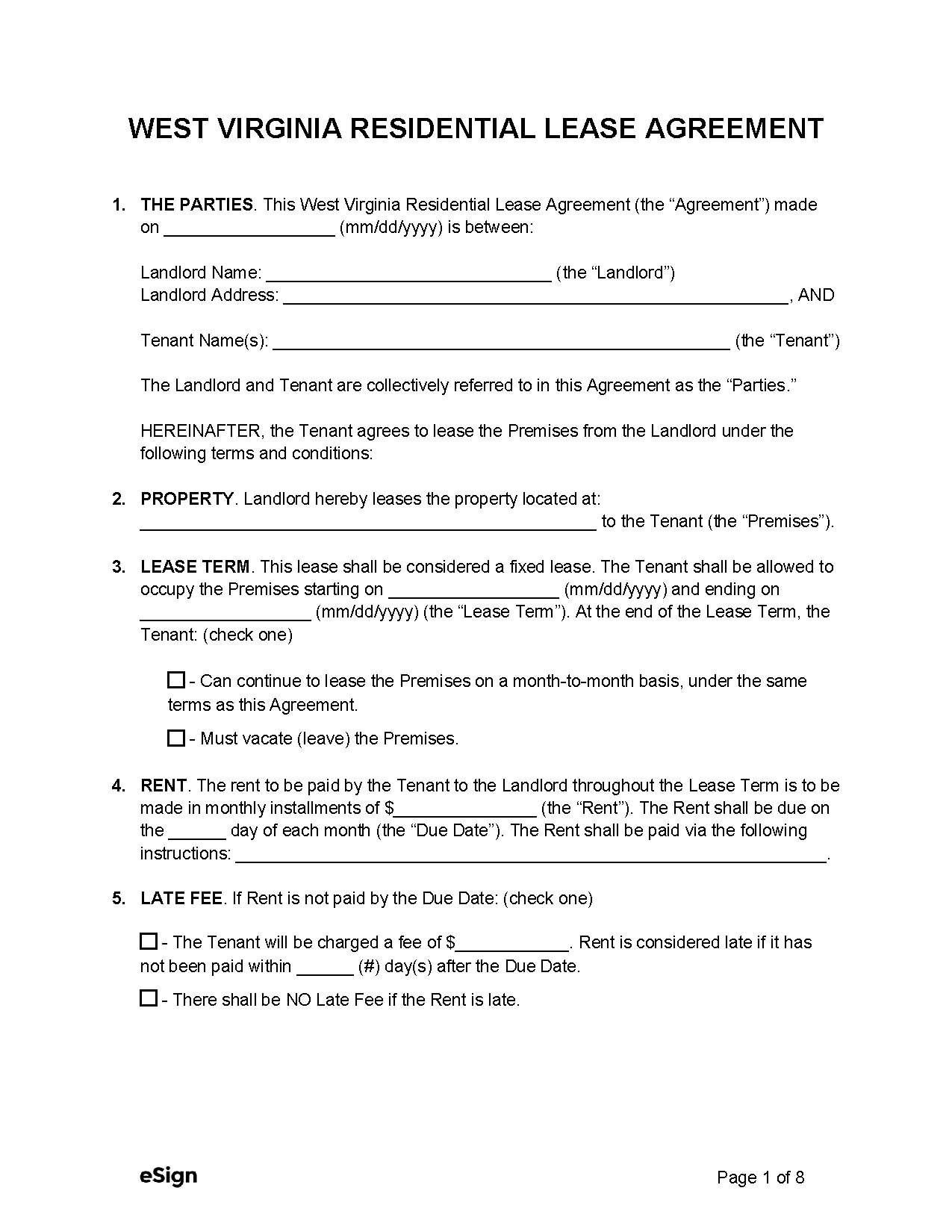Rental Application – Landlords may use this document to screen prospective tenants’ backgrounds to ensure they are able to enter into a lease agreement.
Required Disclosures (2)
- Lead-Based Paint Disclosure (PDF) – The landlord must inform the tenant of the presence of any lead-based paint within the dwelling (required if the building was constructed before 1978).[1]
- Non-Refundable Fees – Pet fees and application fees must be identified in writing as non-refundable.[2]
Security Deposits
- Maximum – No statutory limit.
- Returning – 60 days from the tenancy termination date or 45 days from the date of occupation by a new tenant, whichever is sooner.[3]
Rent Grace Period
In West Virginia, no grace period is required.
Landlord Resources
- Real Property – Landlord and Tenant – Chapter 37, Article 6
- Handbooks (Guides):

